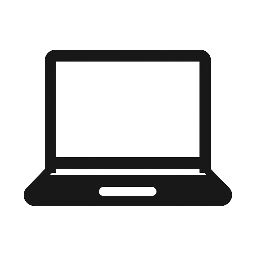When most people hear the term “blockchain,” their thoughts often jump straight to cryptocurrencies like Bitcoin or Ethereum. While blockchain technology is indeed the underlying technology behind digital currencies, its potential goes far beyond financial speculation. In 2025 and beyond, blockchain is emerging as a transformative force across a wide range of industries—reshaping everything from supply chains and healthcare to voting systems and digital identity.
This article explores the expanding role of blockchain technology beyond its use in cryptocurrencies and why it could become one of the most critical innovations of the digital age.


What Is Blockchain Technology?
At its core, blockchain is a decentralized, distributed ledger that records transactions across multiple computers in a way that ensures the data is secure, immutable, and transparent. Unlike traditional databases, which are controlled by a single authority, blockchains operate on a peer-to-peer network, enabling trust without intermediaries.
Every entry or “block” in a blockchain is timestamped and linked to the previous block, forming a continuous “chain.” This design makes it nearly impossible to alter past data without the consensus of the network.
Blockchain Technology Is More Than Just Crypto
Yes, blockchain powers cryptocurrencies. But the same technology can be used to record and verify any type of data, from property deeds to academic credentials. Its potential lies in the decentralized validation and tamper-proof nature of its ledger—qualities highly sought after in today’s data-driven economy.
Here are some of the key areas where blockchain is already making an impact:
1. Healthcare: Securing Patient Records and Medical Data
In healthcare, data privacy and accuracy are critical. Blockchain allows for secure, tamper-resistant patient records that can be shared across hospitals, labs, and insurance companies without compromising privacy.
For example:
- Patients can own and control access to their medical history.
- Data sharing across platforms is simplified and made secure.
- Errors and duplicate records are reduced through verification.
Startups like MediLedger and projects by major players like IBM Watson Health are already piloting blockchain applications in pharmaceutical tracking and medical data management.
2. Supply Chain Transparency
From farm to table or factory to store, blockchain can be used to track the journey of goods in a supply chain, increasing transparency and reducing fraud. Each step in a product’s journey is logged onto the blockchain, allowing stakeholders and consumers to verify authenticity and origin.
Use cases include:
- Tracking ethically sourced materials.
- Verifying authenticity of luxury goods or electronics.
- Preventing counterfeit pharmaceuticals.
Brands like Walmart, Nestlé, and De Beers are already using blockchain to ensure the integrity of their supply chains.
3. Digital Identity Management
Traditional identity systems are fragmented, insecure, and vulnerable to data breaches. Blockchain introduces the concept of self-sovereign identity, where users control their own digital credentials and share only the minimum required information.
Benefits include:
- Improved security and privacy.
- Faster, more efficient identity verification.
- Potential for universal digital IDs that reduce the need for multiple logins or physical documents.
Microsoft’s ION project on the Bitcoin blockchain is one such example of decentralized digital identity.
4. Secure Voting Systems
Blockchain could provide a solution to election fraud and transparency issues. A blockchain-based voting system would allow citizens to cast their votes digitally with full transparency and cryptographic proof that their vote was counted accurately and not altered.
Key advantages:
- Tamper-proof vote recording.
- Real-time auditing capabilities.
- Remote and inclusive voting potential for global citizens.
Countries like Estonia and pilot projects in Switzerland have already tested blockchain-enabled voting.
5. Smart Contracts and Business Automation
Smart contracts are self-executing agreements written in code that automatically enforce terms and conditions once predefined criteria are met. These contracts eliminate the need for intermediaries like lawyers or notaries.
Use cases include:
- Automating insurance claims.
- Managing royalties and copyright payouts.
- Facilitating B2B transactions and service-level agreements.
Smart contracts are foundational to platforms like Ethereum, Polygon, and Solana—enabling a wide range of decentralized applications (dApps).
6. Education & Credentials Verification
Academic fraud is a significant issue in job markets and education systems. Blockchain technology provides a way to issue and verify degrees, certificates, and training records without the possibility of tampering.
This helps:
- Employers quickly verify candidate credentials.
- Students maintain a lifelong, verifiable record of their achievements.
- Institutions avoid diploma mills and document forgery.
MIT and several global universities are already issuing blockchain-based diplomas.
7. Environmental and Carbon Tracking
Blockchain can also contribute to sustainability and climate initiatives by tracking carbon credits, renewable energy use, and environmental pledges.
Examples:
- Blockchain for Climate Foundation uses Ethereum to support the Paris Agreement’s carbon markets.
- Power Ledger enables peer-to-peer trading of renewable energy.
Transparency and traceability on the blockchain build trust in environmental claims and sustainability certifications.
What’s Next for Blockchain Technology?
Blockchain’s evolution is still in its early days. As scalability improves and interoperability between chains becomes more efficient, the technology is likely to become a core layer of the internet, much like HTTP or TCP/IP.
Upcoming developments to watch:
- Interoperable blockchains that communicate seamlessly.
- Layer 2 solutions that reduce transaction fees and increase speeds.
- Regulatory frameworks that clarify blockchain’s legal standing and boost adoption.
With advancements in quantum computing and AI, blockchain is expected to integrate even deeper into enterprise operations and national infrastructure in the coming years.
Conclusion
While cryptocurrencies may have introduced blockchain to the world, its true impact lies far beyond financial markets. From securing medical records and tracking goods to revolutionizing voting and identity systems, blockchain technology offers real-world solutions to some of the most pressing digital challenges.
As the technology matures and adoption grows, blockchain is positioned not just as a trend—but as a foundational tool for a more secure, transparent, and efficient digital future.


Leave a Reply